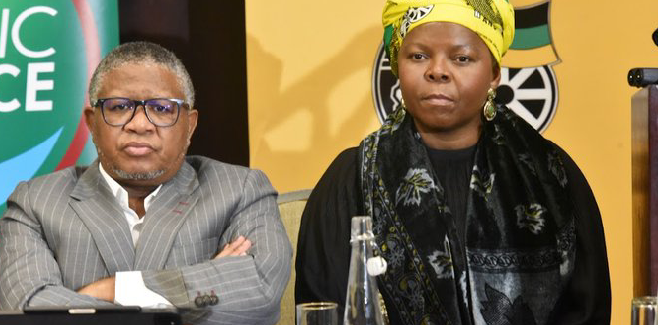A high-level African National Congress (ANC) meeting reportedly grew heated this week when Deputy President Paul Mashatile and ANC National Chairperson Gwede Mantashe openly criticized Secretary-General Fikile Mbalula for arriving more than an hour late, according to sources familiar with the matter.
The closed-door meeting, held at Luthuli House, was meant to address critical party issues, including internal discipline, 2027 election strategies, and governance challenges. However, insiders revealed that the discussion was momentarily derailed by a sharp exchange over Mbalula’s tardiness, exposing rising tensions within the party’s top leadership.
Two senior ANC members, speaking anonymously, said Mashatile and Mantashe were visibly frustrated after waiting for Mbalula, who arrived well after the scheduled start time. The meeting had already been delayed by nearly an hour when Mbalula entered, prompting immediate pushback from both leaders.
Mashatile, known for his composed demeanor, reportedly raised the issue first, stressing that punctuality in leadership meetings reflects respect and discipline. Mantashe, often more blunt, delivered a stern reprimand, accusing Mbalula of disrespecting the collective by disregarding the agreed-upon time.
“It was an awkward moment. You could feel the tension in the room,” one source said. “The lateness clearly struck a nerve, especially given the importance of the meeting’s agenda.”
Mbalula reportedly attributed his delay to overrunning prior commitments, but his explanation did little to ease his colleagues’ irritation.
The incident is viewed by some within the ANC as indicative of broader tensions among the party’s top officials, where clashing leadership styles and mounting political pressures—particularly ahead of the 2026 local elections—are becoming more apparent.
ANC spokesperson Mahlengi Bhengu-Motsiri declined to comment directly on the altercation but reiterated the party’s commitment to discipline and unity. As the ANC continues to grapple with internal challenges and external scrutiny, the need for cohesion and professionalism at the highest levels remains crucial.






















